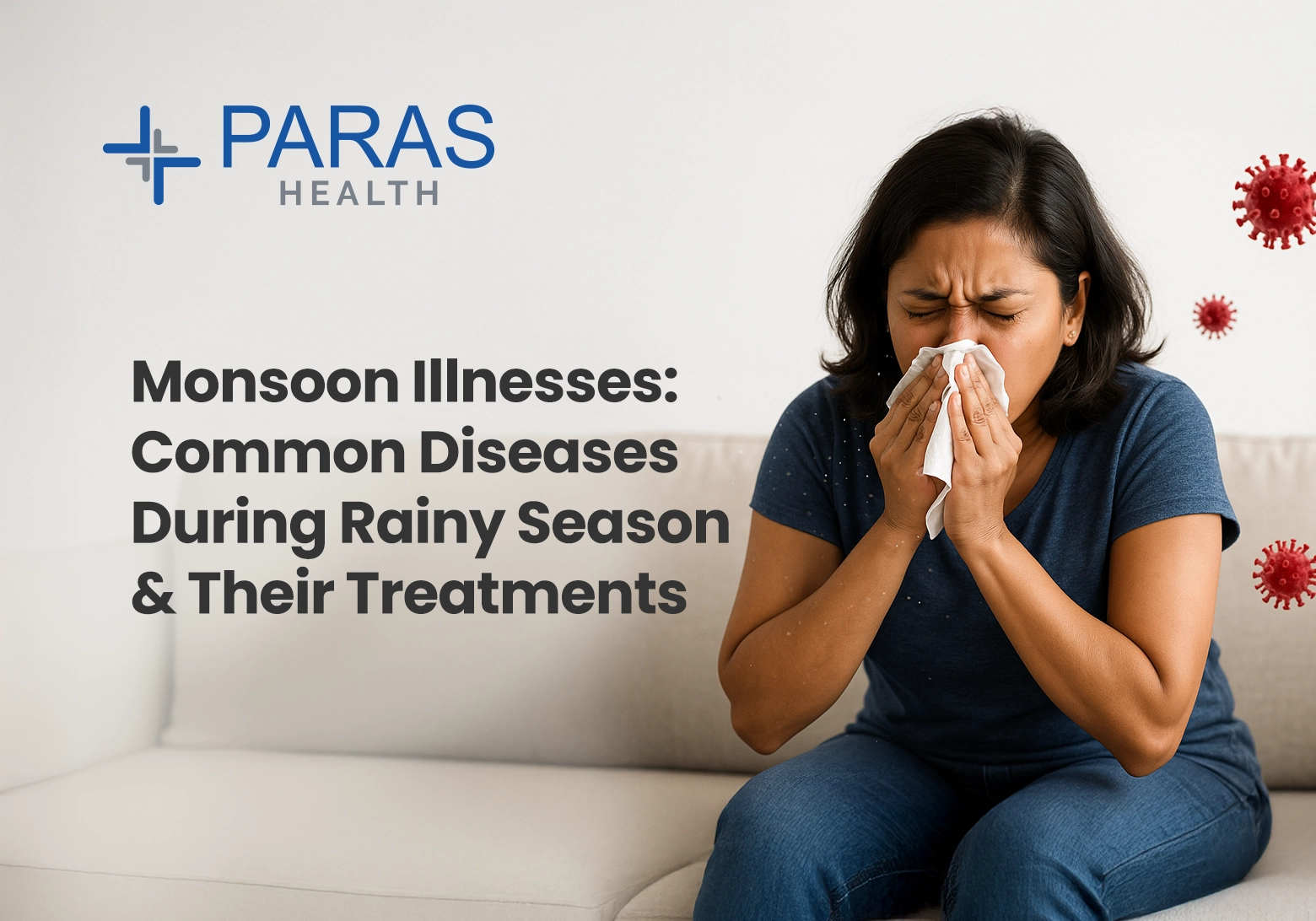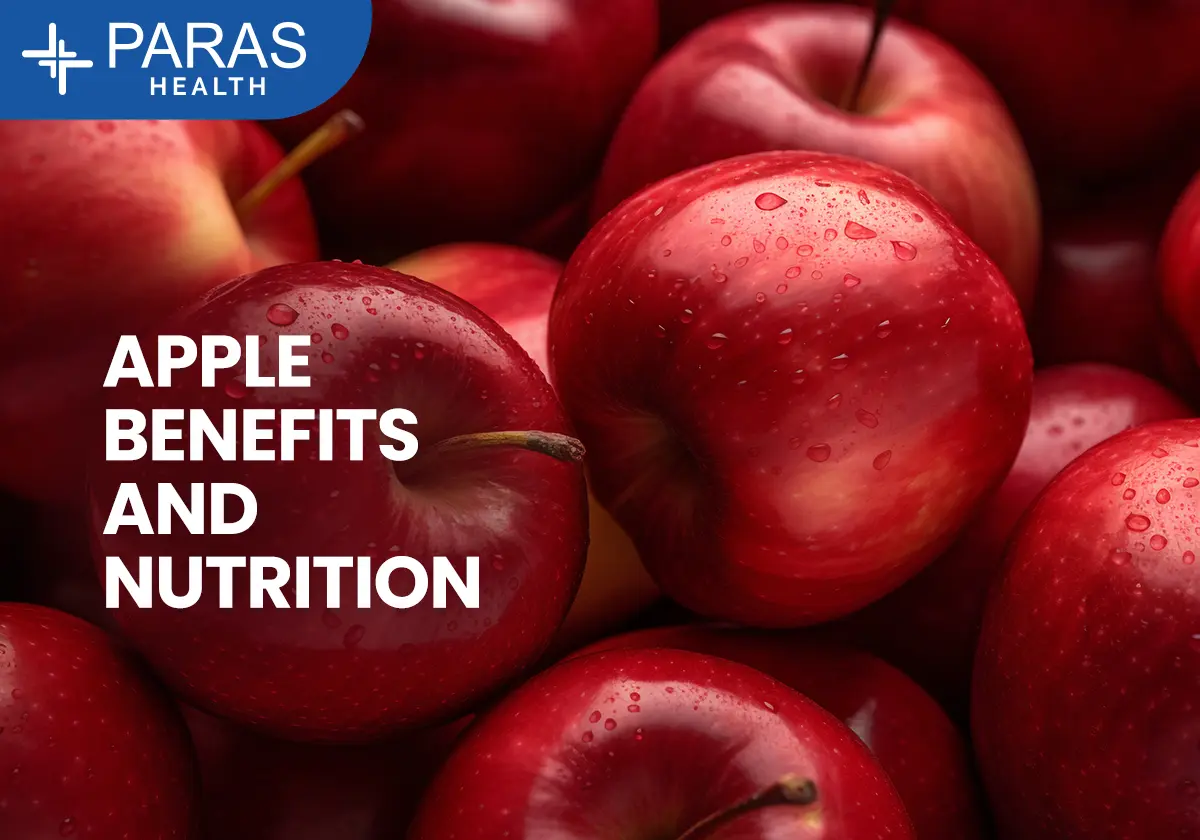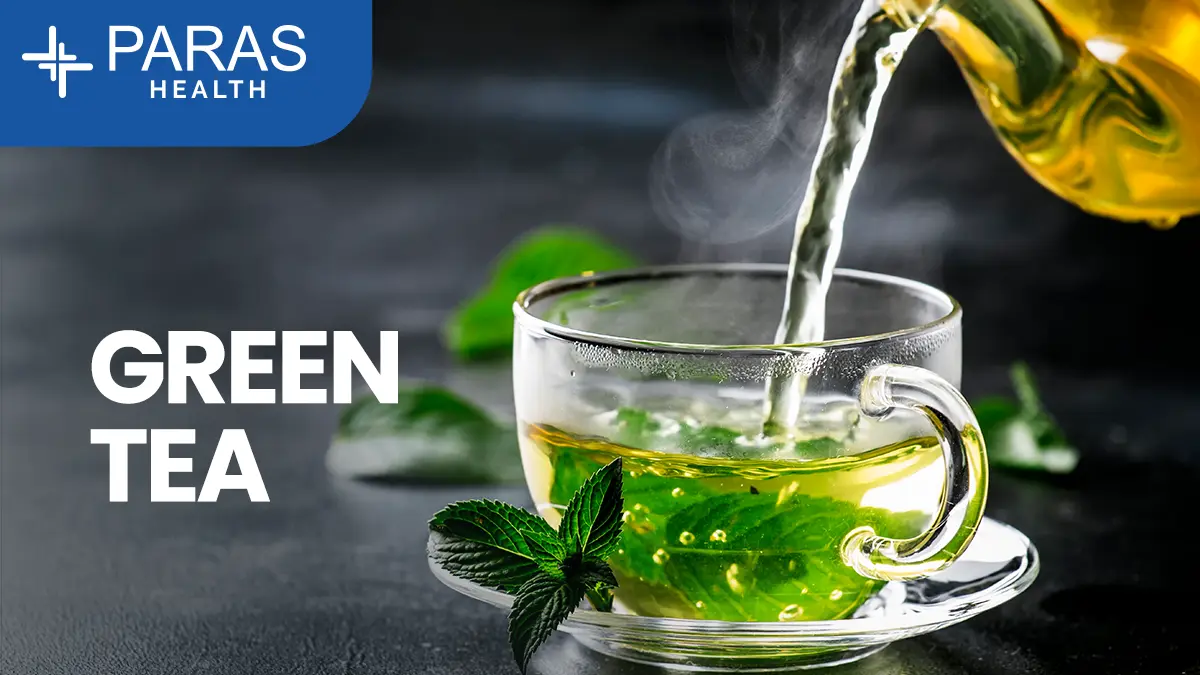Monsoon Illnesses: Common Diseases During Rainy Season & Their Treatments
Jul 18, 2025
The monsoon season brings with it cool breezes, green landscapes, and the joy of sipping hot tea in the rain. But alongside all this beauty, monsoon also invites a surge in illnesses. From viral fevers to mosquito-borne diseases, the rainy season can take a toll on your health if you’re not careful.
In this blog, we’ll explore the most common monsoon illnesses, their causes, symptoms, and treatments, along with practical tips to stay healthy during the rainy season.
Why Do Illnesses Increase in the Monsoon?
Monsoon creates the perfect environment for infections to thrive—warm, humid, and often unsanitary. Stagnant water becomes a breeding ground for mosquitoes, and the risk of contaminated food and water rises. This makes us more vulnerable to seasonal infections and monsoon-related health problems.
Common Monsoon Illnesses & Their Treatments
1. Dengue
Dengue is a mosquito-borne viral illness spread by the Aedes mosquito, which breeds in clean stagnant water.
Symptoms:
- High fever
- Severe headache and eye pain
- Joint and muscle pain
- Skin rashes
- Nausea or vomiting
Treatment:
- No specific medicine; supportive care only
- Take paracetamol (avoid ibuprofen or aspirin)
- Rest and stay hydrated with fluids like ORS, coconut water, and juices
- Seek immediate medical care if symptoms worsen
2. Malaria
Malaria is caused by a parasite transmitted through the bite of infected Anopheles mosquitoes.
Symptoms:
- Recurring fever with chills and sweating
- Headache
- Nausea and vomiting
- Fatigue
Treatment:
- Blood test to confirm diagnosis
- Antimalarial medications prescribed by a doctor
- Plenty of rest and hydration
3. Typhoid
Typhoid is a bacterial infection caused by Salmonella typhi, usually spread through contaminated water or food.
Symptoms:
- High fever
- Abdominal pain
- Weakness and fatigue
- Constipation or diarrhea
- Loss of appetite
Treatment:
- Antibiotics (as prescribed)
- Light, easy-to-digest meals
- Maintain proper hygiene and hydration
4. Viral Fever
Sudden temperature drops and humidity in monsoon make viral infections more common.
Symptoms:
- Low to high-grade fever
- Cough and sore throat
- Runny nose
- Body aches
Treatment:
- Rest, warm fluids, and OTC fever-reducing medicines
- Salt water gargles for throat pain
- Doctor consultation if fever lasts beyond 3 days
5. Diarrhea & Stomach Infections
Eating contaminated food or drinking unclean water during the rainy season can lead to gastrointestinal issues.
Symptoms:
- Loose motions
- Vomiting
- Abdominal cramps
- Dehydration
Treatment:
- Oral Rehydration Solution (ORS)
- Light, bland diet like khichdi or toast
- Avoid dairy and spicy foods during infection
- Doctor’s help if symptoms persist
6. Fungal Infections
Humidity and sweat increase the chances of skin infections like athlete’s foot, ringworm, and rashes.
Symptoms:
- Itching
- Redness and rashes
- Peeling or cracked skin
Treatment:
- Keep affected area dry and clean
- Apply antifungal creams or powders
- Wear loose, cotton clothing
- Avoid reusing damp shoes or socks
7. Leptospirosis
A bacterial infection spread by contact with water contaminated by animal urine, often seen during floods.
Symptoms:
- High fever
- Muscle pain
- Red eyes
- Vomiting
- Jaundice (in severe cases)
Treatment:
- Early antibiotic treatment
- Immediate medical attention is critical
How to Prevent Monsoon Illnesses
Here are some simple but effective monsoon health tips:
- Always drink boiled or filtered water
- Use mosquito nets, repellents, and wear full-sleeved clothes
- Eat freshly cooked food; avoid street food and cut fruits
- Wash hands regularly with soap
- Don’t allow water to stagnate near your home
- Keep feet dry to avoid fungal infections
- Strengthen immunity with a balanced diet: include turmeric, tulsi, ginger, garlic, and seasonal fruits
What to Eat During the Monsoon?
Eat:
- Warm soups, herbal teas
- Boiled vegetables
- Seasonal fruits like pomegranate, papaya, apple
- Protein-rich foods like dal, egg, paneer
- Turmeric milk (haldi doodh)
Avoid:
- Raw salads or street-side snacks
- Leafy vegetables (often contaminated)
- Seafood (as it spoils faster in humidity)
- Carbonated drinks and packaged juices
Frequently Asked Questions (FAQs)
Q1. What are the most common monsoon illnesses?
Dengue, malaria, typhoid, viral fever, diarrhea, fungal infections, and leptospirosis are the most common illnesses during rainy season.
Q2. Why do people fall sick in the rainy season?
Humidity, unclean water, and increased mosquito breeding make the body prone to infections and illnesses in monsoon.
Q3. How can I boost immunity during monsoon?
Include immunity boosters in your diet like turmeric, ginger, tulsi, and vitamin C-rich fruits. Sleep well and avoid junk food.
Q4. How to prevent mosquito-borne diseases in monsoon?
Eliminate stagnant water, use mosquito repellents, and wear protective clothing to avoid mosquito bites.
Q5. What’s the best home remedy for viral fever?
Take rest, stay hydrated, and drink tulsi-ginger tea. Use paracetamol for fever but consult a doctor if it persists beyond 2–3 days.
Q6. Are children more vulnerable to monsoon illnesses?
Yes, children have developing immune systems, so they need extra care, especially with food, hygiene, and mosquito protection.
Conclusion: Stay Safe This Monsoon
Monsoon may bring joy to nature, but it also brings along several health risks. The key to staying safe is awareness, prevention, and timely care. Maintain hygiene, eat clean, drink safe water, and don’t ignore any symptoms.
If you notice fever, fatigue, or persistent stomach issues—consult a doctor immediately. Let’s enjoy the rains without falling sick!










 (1).webp)